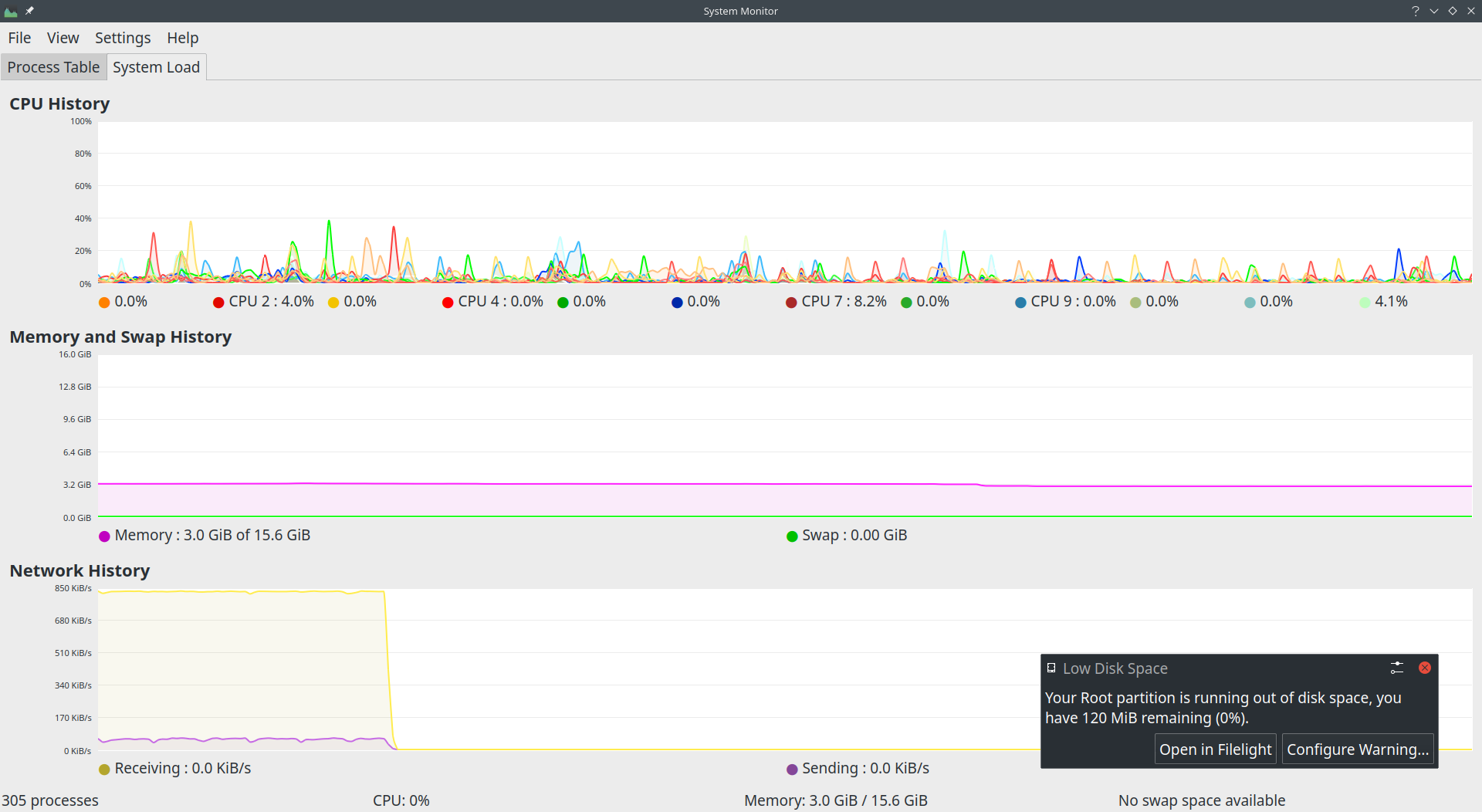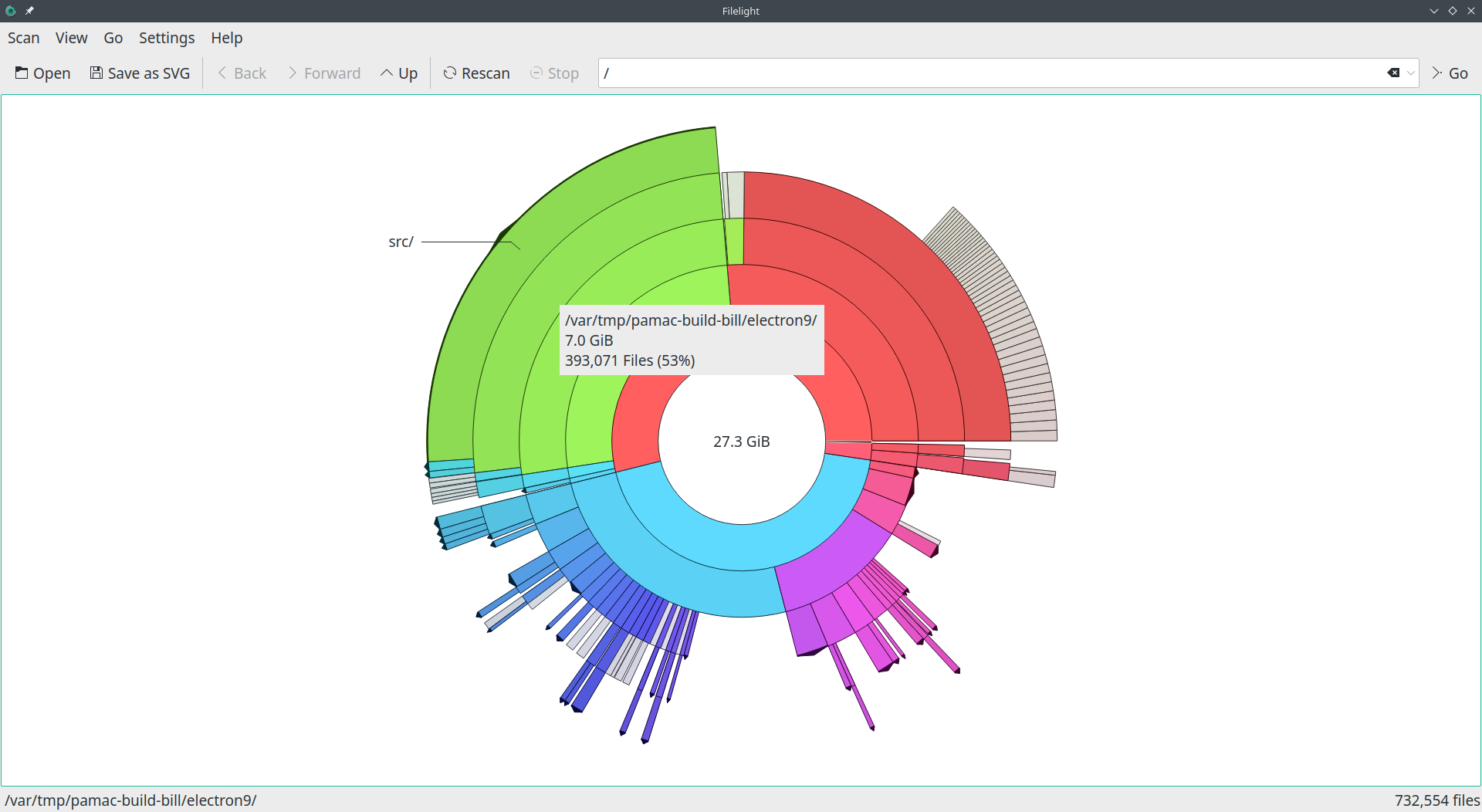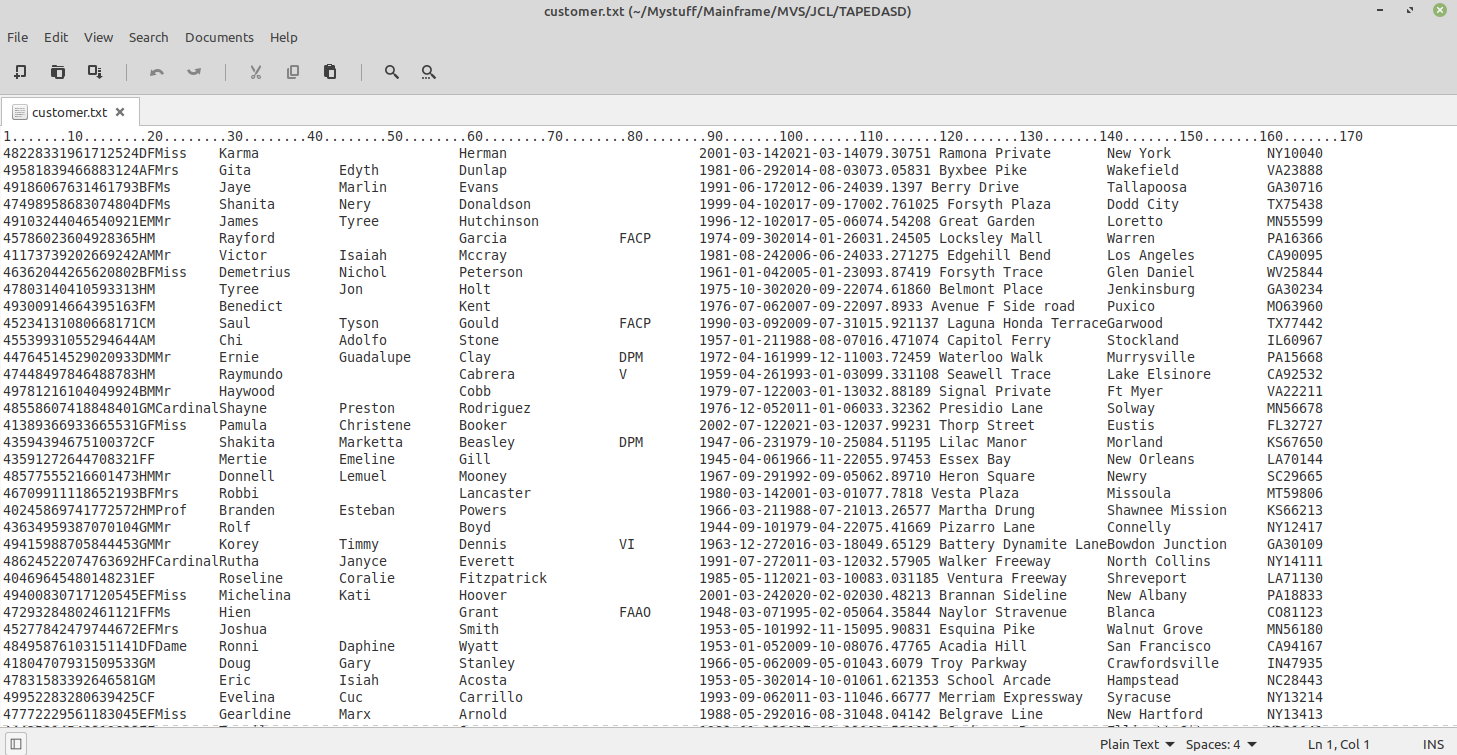Apparently I added WRK141.141, WRK142.142 and four cbt volumes to tk4- (MVS) and didn’t document it. From their FAQ “The CBT tape is a collection of freeware almost all open-source distribution for the IBM mainframe MVS and OS/390 operating system environment.”
Manjaro electron update
Tried this again! After running and downloading for over an hour, had to cancel because Manjaro complained that root only had ~120MB left.

And it had already downloaded 7GB, before I finally canceled it. To top it off, I have no idea how much more it had to go…no progress bar. Also as I said before it was supposed to be in the build stage, the download stage was long over. Now it’s quite possible that much of this was source files that might have been deleted at the end of the build. IDK! This is one reason this newbie (that has used Linux since the mid 1990s) sticks with Linux Mint. The whole Manjaro distro ISO was only 3.2GB. WTH?

I guess I’ll just have to install the latest ISO again.
Making YouTube videos
Made YouTube videos about Hercules MVS mainframe coding locally. Made them for myself posted privately, but may make them Public.
Have another in mind. Using virtual tapes to load large amounts of data into MVS. Both of these topics were personally important to me! I’ll do Mainframe emulation for a while then stop long enough to forget my workflow and the little details.
Interesting
Nervous update
Manjaro said it had one update…Electron! So I started it, not paying that much attention to it. Did notice a download phase. Then noticed it was in a build phase. Seemed like it should have been done in maybe 5 minutes.
…still building
looked at my network monitor and something was downloading something?
Maybe some tab in Firefox was downloading? Shutdown Firefox
…still downloading
…still building
Let run another 10 minutes
…still downloading
…still building
At the build phase after the download phase, shouldn’t downloads be finished?
At this point it seems as if it downloaded enough MBs or possibably GBs as the distribution itself. I’ve updated hundreds of programs using pacman and it’s taken less time than this!
There were some other dependencies but still it seemed to me an unreasonable amount of time, especially when the download phase supposedly was finished. I mean really…it’s one program. What was going on? If I was familiar with Wireshark or some other networking tool I probably could have found out. It didn’t have a progress bar just a stupid bar that went right then left, then right then left…and so on.
Anyway, I’m probably overly paranoid but it made me nervous and I finally canceled it. It probably had 20 sec to go!
maketape/tapedump updates
While googling “Hercules AWS ” I see that Jay Mosley made some updates in July 2020 that I was unaware of. Changes seems mostly concerning using gnuCobol to provide a fullscreen interface…interesting.
Hercules virtual tape – large datasets
These are timings for a large one million customer records, dataset. It follows the same process below. It just goes to show my reasoning why I like this method to move large datasets to the virtual mainframe.
Use maketape to create the virtual tape file!
bill@bill-MS-7B79:~/Mystuff/Mainframe/MVS/JCL/TAPEDASD$ time ./maketape INPUT: customer-million.txt VOLSER: VOL001 DATASET: CUSTOMER.FILE OUTPUT: TAPE01.AWS LRECL: 165 BLOCK: 100
MAKETAPE v1.1 (C) copyright Jay Moseley, CCP 2000
Processing input from: customer-million.txt
Wrote 10000 blocks to AWSTAPE file: TAPE01.AWS (Seq #0001 Dataset:CUSTOMER.FILE )
real 0m0.430s
user 0m0.343s
sys 0m0.088s
bill@bill-MS-7B79:~/Mystuff/Mainframe/MVS/JCL/TAPEDASD$
Converted one million records in under a second to AWS tape
Load the virtual tape file into a MVS dataset!
HHC01603I devinit 00c /home/bill/Mystuff/Mainframe/MVS/JCL/TAPEDASD/TAPEDASD.JCL
HHC01046I 0:000C COMM: device unbound from socket 3505
HHC00101I Thread id 7F7AF1F1B700, prio 0, name Socket device listener ended
HHC02245I 0:000C device initialized
21.13.01 JOB 771 $HASP100 TAPEDASD ON READER1 BILL
21.13.01 JOB 771 $HASP373 TAPEDASD STARTED – INIT 1 – CLASS A – SYS TK4-
21.13.01 JOB 771 IEF403I TAPEDASD – STARTED – TIME=21.13.01
21.13.01 JOB 771 IEF233A M 480,VOL001,,TAPEDASD,STEP01
HHC01603I devinit 480 /home/bill/Mystuff/Mainframe/MVS/JCL/TAPEDASD/TAPE01.AWS
HHC00221I 0:0480 Tape file /home/bill/Mystuff/Mainframe/MVS/JCL/TAPEDASD/TAPE01.AWS, type aws: format type AW
HHC02245I 0:0480 device initialized
HHC00201I 0:0480 Tape file /home/bill/Mystuff/Mainframe/MVS/JCL/TAPEDASD/TAPE01.AWS, type aws: tape closed
21.13.11 JOB 771 IEF234E K 480,VOL001,PVT,TAPEDASD,STEP01
21.13.11 JOB 771 IEF404I TAPEDASD – ENDED – TIME=21.13.11
21.13.11 JOB 771 $HASP395 TAPEDASD ENDED
21.13.11 $HASP309 INIT 1 INACTIVE * C=A
21.13.11 JOB 771 $HASP150 TAPEDASD ON PRINTER1 90 LINES
21.13.11 $HASP160 PRINTER1 INACTIVE – CLASS=A
21.13.11 JOB 771 $HASP250 TAPEDASD IS PURGED
One million records loaded to a MVS dataset in about 10 seconds (21:13:01 – 21:13:11)
Of course a custom program such as a Cobol program could have just processed the Virtual tape directly! That would actually probably be best, no need to load to MVS dataset…it’s already on disk, even though MVS thinks it’s a tape!
Move programs to github
Move updated parsejob (fix counts and don’t die if input missing) and toherc (don’t restrict tapes to tape directory) into github.
Rebuild Pi-hole
So maybe a week ago pi-hole stopped working. That’s not great reliability. A month of use before failure. At that time, I tried to SSH into it and it seemed sluggish to the point of being unusable. I didn’t know if it was hardware (did the pi overheat and components were failing?) or software. So today I reloaded the OS and the pi-hole software. Reinstallation was slow & tedious, but it appears to be blocking ads. However “Queries Blocked” on the dashboard stays at zero. The “Total Quaries” count is being updated without refresh. That’s almost half the fun…seeing that blocked count grow. However the most important part…blocking adds appears to be working. Went to various pi-hole testing sites and many news sites to test.
So what went wrong that it only worked for a month? Was it hacked? That’s my biggest worry about a server always connected to the internet. And if it was, could a DNS entry or something be altered to send me to the wrong place?
Hercules virtual tape review
Previously, I talked about Hercules virtual tapes without being specific. I find this useful for getting large amounts of data to a MVS dataset. So here I find myself reviewing/documenting the procedures…again!
These below examples are using test data with a fixed length of 165 characters!

Getting the data
It seems I created some fixed length test records with various record counts in ~/Mystuff/COBOL/data/
Since I need to be able to view the files on Linux they have one extra byte at the end that the mainframe doesn’t need…the new line character. It would be hard to view a large file on Linux without this character as most editors are looking for it.
Mainframe files or datasets are best created as fixed length fields and lengths.
I use a Python program to create a lot of real looking test records. This program uses the mimesis package, so currently mimesis is installed in a virtual environment, and can be accessed as follows.
conda deactivate
cd ~/Mystuff/Python3/project1_env/
source bin/activate
Converting the data to a Virtual Tape file
Note: I moved Jay’s “C” programs (maketape and tapedump) to “/usr/local/bin” so I can run them anywhere!
Once the test or real data is created as a Linux ASCII file, it needs to be converted to a EBCDIC virtual tape file. I use Jay Mosley’s maketape program. See here to get maketape. Example below. The dollar sign is the Linux command line prompt.
Here’s how I’d use maketape to convert the linux file into a Hercules mainframe virtual tape dataset
$ maketape INPUT: customer.txt VOLSER: VOL001 DATASET: CUSTOMER.FILE OUTPUT: TAPE04.AWS LRECL: 165 BLOCK: 100
MAKETAPE v1.1 (C) copyright Jay Moseley, CCP 2000
Processing input from: customer.txt
Wrote 1001 blocks to AWSTAPE file: TAPE04.AWS (Seq #0001 Dataset:CUSTOMER.FILE )
$
Viewing Virtual tape info locally
tapedump is useful for virtual tapefiles that you may have forgot details about. It can provide useful information needed for your JCL, DD card. See the IEBGENER utility in the next section.
$ tapedump I: TAPE01.AWS
TAPEDUMP v1.0 (C) copyright Jay Moseley, CCP 2000
Processing AWSTAPE file: TAPE01.AWS
Serial Number from VOLume 1 label: VOL001
File MVT Dataset RECFM BLKSIZE LRECL BlocksExpected BlocksRead
0001 CUSTOMER.FILE F 16500 165 1001 1001
$
Apparently there exists a program called “hetmap” that gives more details than TAPEDUMP.
Processing the virtual tape on the mainframe
You can either use a custom program (for example COBOL or Assembler) on the mainframe. For example the select statements in the COBOL program in my case looks like this…
SELECT IN-FILE ASSIGN TO UT-S-INTAPE.
SELECT OUT-FILE ASSIGN TO DA-S-OUTDISK.
Or you can use the IBM utility IEBGENER to load this virtual tape file to disk. As far as these programs are concerned this file is a tape!
IEBGENER (upload) Jcl
//TAPEDASD JOB (12345678),BILL,CLASS=A,MSGCLASS=A,
// MSGLEVEL=(1,1),USER=HERC01,PASSWORD=CUL8TR
//STEP01 EXEC PGM=IEBGENER
//SYSPRINT DD SYSOUT=*
//SYSOUT DD SYSOUT=*
//SYSUT1 DD DSN=CUSTOMER.FILE,UNIT=TAPE,VOL=SER=VOL001,
// DISP=OLD,LABEL=(,SL)
//SYSUT2 DD DSN=CUST.MILLION.DATA,
// DISP=(NEW,CATLG,DELETE),
// SPACE=(CYL,(200,10),RLSE),
// UNIT=3350,
// VOL=SER=WRK142,
// DCB=(DSORG=PS,RECFM=FB,LRECL=165,BLKSIZE=16500)
//SYSIN DD *
GENERATE MAXFLDS=1
RECORD FIELD=(165)
/*
After submitting this Job it will wait for the tape
You should get a message from the console like so…
HHC01603I devinit 00c /home/bill/Mystuff/Mainframe/MVS/JCL/TAPEDASD/TAPEDASD.JCL
HHC01046I 0:000C COMM: device unbound from socket 3505
HHC00101I Thread id 7F65F81BC700, prio 0, name Socket device listener ended
HHC02245I 0:000C device initialized
16.31.23 JOB 769 $HASP100 TAPEDASD ON READER1 BILL
16.31.23 JOB 769 $HASP373 TAPEDASD STARTED – INIT 1 – CLASS A – SYS TK4-
16.31.23 JOB 769 IEF403I TAPEDASD – STARTED – TIME=16.31.23
16.31.23 JOB 769 *IEF233A M 480,VOL001,,TAPEDASD,STEP01
herc =====>
As you can see from the last message IEF233A, the job is looking for a tape on device 480
Which you supply by giving Hercules the following command
devinit 480 pathToVirtualTape/TAPE01.AWS
Some other useful Hercules tape commands
Check for tape drives:
/d u,tape
/v 480,online
You can use dslist in TSO (to easily look at the dataset)